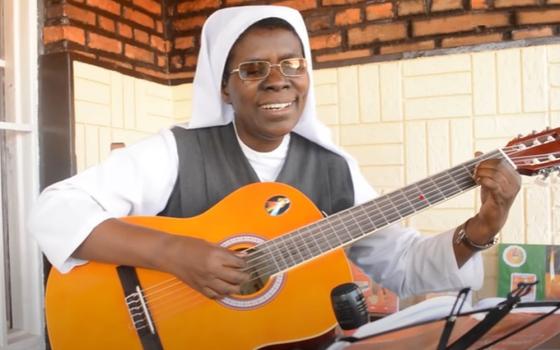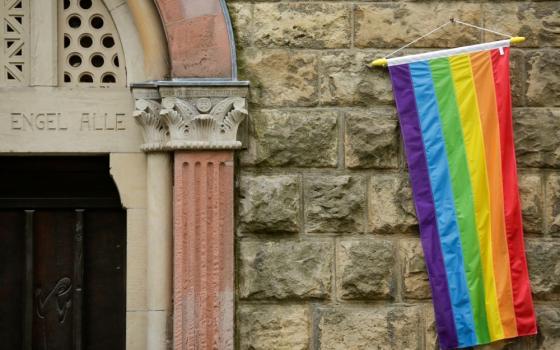Pope to priests: "Be Nice."
Pope to people: "There is an easier softer way if we can get your attention."
Pope Francis shows he's learned from listening to real life factors that confound one-size-fits-all doctrine. He feels the pain of people and admires the grace that shines through their often complex families. His message projects solidarity with human frailty and love for those who live their faith in noncomformity with the church.
The empathy and good will seems too late to reach those who long ago stopped listening, however, and the promise of a renewed ministry of compassion seems couched in outdated terms and with no remedies that don't involve burdensome hurdles and chancy results. Maybe you'll get to receive communion, maybe you won't, depending on lots of random factors.
It is a make-up appeal to Catholics who feel shut out by the rules, an effort to assure them that new generations of priests will be trained to spot the nuances that may make them exceptions to the rules. Instead of being pigeonholed as violators of doctrine, he expresses hope that they'll be treated with respect and understanding with a right to use their conscience as their guide. This message adds further to my supposition that Francis' answer is to reemphasize the primacy of conscience as a way around the rules.
Unfortunately, I believe this leaves the field open to arbitrary and contradictory decisions and actions without clarity about where the rules either get discarded entirely or overrule the dictates of conscience. It could be relative chaos out there. Pastor A may remain committed to the letter of the law, which is actually still on the books, while Pastor B may lean toward making an exception. He has grasped their particular circumstances and been persuaded that they don't deserve judgment. But what exactly does happen when Pastor B's empathy runs into the rule? How does he justify waving the rule and how can any consistency be established? (Isn't it disingenuous to walk down the path of sincere counsel, agree with the appeal, then, as many have done, repeat that no matter what, the law is the law?}
A loving and caring pope like Francis isn't much different from a loving and caring parent in wanting to practice mercy ahead of judgment, but where does that leave judgment? To the person under examination? To accidental elements that appear at the time?
What seems indisputable is that rules have caused the enormous disruptions that are shaking the church's foundations. All those people who broke church law on issues such as sexuality have either left the church or have been seriously disaffected. The pope wants to bring them back, to restore vitality and to reverse what he sees as alienating clericalism.
If rules have created the crisis, however, a solution would presumably entail changing the rules. The pope prefers an end run. The effect is to encourage freelance discernment on part of pastors, a claim to conscience on the part of laity, and safeguarding of norms to be left to bewildered bishops. Granted, rules aren't themselves the supreme authority, but they do remain in the background as having the institution's highest endorsement.
Though the pope inevitably speaks from the clerical realm, my impression is that that voice has lost a great deal of effectiveness among the laity. In that sense it sounds anachronistic. For many decades the laity has relied on its own voice, in part because Vatican II revived the dignity of personal conscience in deciding matters of faith and practice. Any pope now speaks to an entirely different Catholic population, especially in Europe and North America, which may nod respect to the Vatican's words but give them relative rather than grave consideration.
Despite the many eloquent and enlightening portions of the pope's message, it still emanates from a place which practices no family life that resembles that of the laity, and loses much credibility accordingly. As things stand, there isn't room for an authoritative document on family life by a mix of clerics and family people themselves. That seems to me a tremendous limitation
In that connection, the analysis and prescription contents of the document operate entirely within the sometimes shadowy framework of defined doctrine. allowing for no valid concept of family life outside the narrow definitions of Catholic moral teaching. It precludes the possibility that other models might reflect the Creator's purposes in yet other ways.




